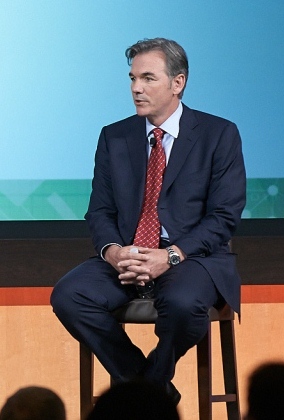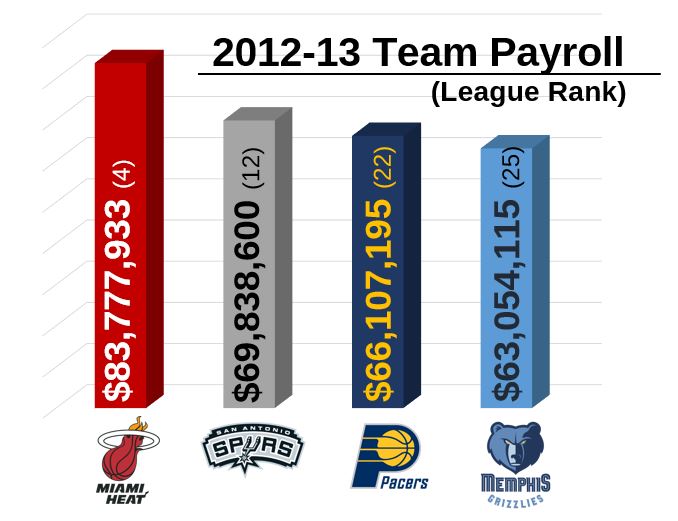
Two years ago, Brad Pitt starred in Moneyball, an Academy Award-nominated story about Oakland A’s general manager Billy Beane bringing the power of advanced analytics to the sport. Beane wasn’t the first to use statistical analytics to build a successful team and keep its payroll in check.
Baseball and political data guru Nate Silver, Chicago Cubs GM Theo Epstein and Houston Rockets GM Daryl Morey have all embraced data as an indicator of future success in sports. Their approaches are in sharp contrast to other general managers of teams that rely on gut instincts and big salaries.
With the NBA Playoffs entering the conference finals, it reminds me of a skit on Sesame Street I used to watch when I was a kid: “One of these things is not like the others.” Of the four teams that are still in the NBA playoffs, the Memphis Grizzlies don’t look like the others, in terms of payroll at least.
But that only tells half the story. When the season started, the Grizzlies weren't seen as a real threat to go deep in the playoffs, if make them at all. And thanks to some big contracts on the books, the team was over the NBA salary cap, hindering their roster flexibility and possibly costing them as much as $30 million in luxury tax fines.
Realizing the delicate situation they were in, the Grizzlies brought in John Hollinger – a sports journalist with a knack for advanced analytics – as the new VP of basketball operations. A recent must-read article by Marc Tracy in the New Republic does an outstanding job of describing how the Grizzlies went from the precipice of mediocrity to the Western Conference Finals. Hint: it started with Hollinger and a controversial trade of the face of the franchise. And it was all based on analytics.
In a nutshell, Hollinger analyzed the numbers for Grizzlies all-star Rudy Gay and found he was “below-average during the first half of this season, and his effective field-goal percentage [which accounts for three-pointers by weighting them as 50 percent more valuable than a two-point shot]ranked him third-worst in the league among those with substantial minutes.” This and other statistics led Hollinger to believe the team could trade Gay for other players that would provide at least the same level of performance – and shave almost $40 million from its payroll.
While non-sports fans might not be interested in Hollinger’s player efficiency rating, his example – and others like it – shows the value advanced analytics can bring to a sports franchise. Whether it’s evaluating which players can help a team win or helping players take more efficient shots, analytics can take ordinary data points and help organizations make changes that can make them extraordinary.
Find out how SAS Analytics is helping sports teams reach the next level of success.


2 Comments
Just a word of advice, don't position the analytics as making the Grizzlies a winner when you bring this up. Position the analytics as being a good cost cutting tool that also maintains financial flexibility for the Grizzlies in the future to BECOME a winner.
This move Hollinger made had no positive or negative effect on the team. They played two lackluster teams in the first two rounds, which is why they got to the conference finals. It was the first year the Clippers were together (you need an integration period for a new core to a team), and OKC did not have Kevin Durant playing, which makes the Grizzlies achievement in making the Western Conference Finals negligible. They would have made it with or without Rudy Gay. Proof of that is that they got swept 4-0 in the western conference finals when they played a legitimate team (the Spurs).
In reality, the Grizzlies still, and were not, anywhere near good enough to win a championship despite getting to the western conference finals. They had a looooooooooonnnnnnggggg way to go before they had any chance to beat the Heat, Spurs, or Grizzlies.
But again, it was good in the sense that it was a good cost cutting maneuver for the franchise's cash flow and it positioned them to have financial flexibility to add better players in the future. But it's immediate impact in terms of true success? Nothing.
*Heat, Spurs, or Pacers.